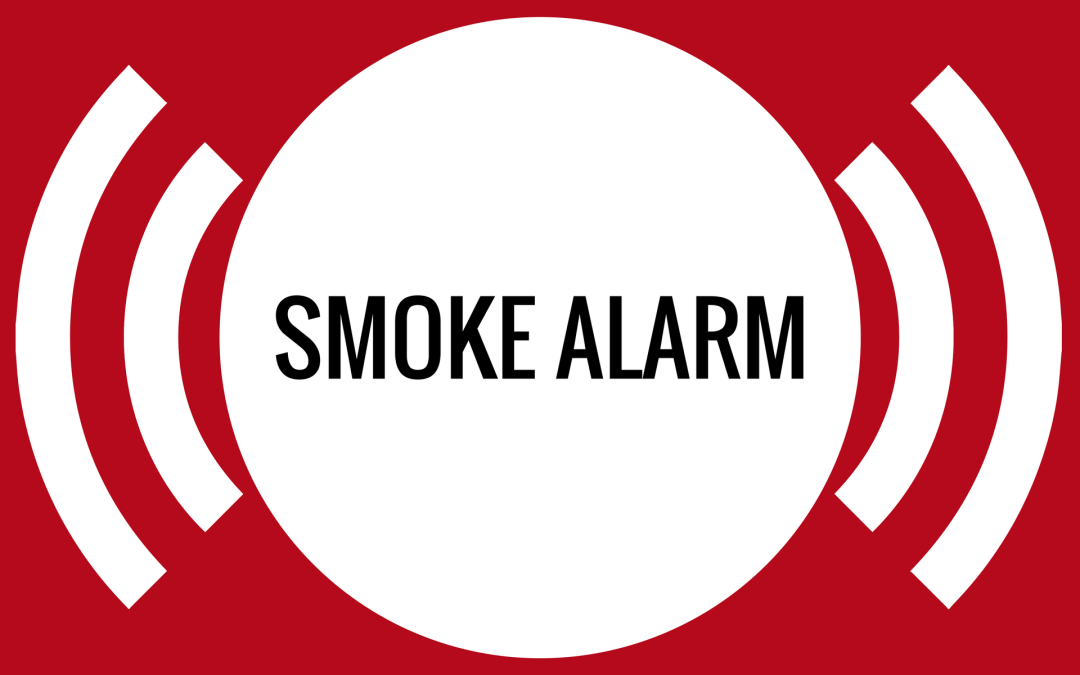Smoke alarms are an important part of any home or business security system. With the ability to detect even small amounts of smoke, they can alert occupants to a potential fire and allow them time to evacuate safely in an emergency situation. Unfortunately, this life-saving device can also be frustrating when it goes off randomly due to false alarms. While some of these random activations may be caused by user error, others could signal a problem with your smoke alarm itself. In order to better understand why your smoke alarm might go off unexpectedly, here is a list of the top 10 reasons for its activation:
The first reason for false alarms is incorrect placement or installation of the smoke detector. When not installed in accordance with manufacturer recommendations and local fire codes, it can become sensitive enough that normal household activities such as cooking or showering cause it to activate unnecessarily. Additionally, dust accumulation on the sensor can trigger false alarms from minor fluctuations in air quality. Improper battery function can also lead to unwanted alerts; if batteries aren’t new and fully charged, they will eventually fail and deactivate the unit causing it to sound erratically.
Finally, while rarer than other causes listed above, malfunctioning units should still be taken into account when trying to diagnose frequent false alarms. This is especially true if you have multiple detectors going off at once despite no apparent environmental triggers present. If this happens often enough, then replacing the faulty unit(s) may be necessary before more serious issues arise down the line.
Faulty Smoke Alarm Culprits
Smoke alarms are essential in helping to keep us safe. However, they can sometimes be set off by false or unintended triggers. A common problem is smoke detectors that go off randomly and without explanation. There are a variety of causes for this phenomenon ranging from faulty components to environmental conditions.
The first thing to consider when assessing why a smoke alarm may be going off unexpectedly is the condition and age of the device itself. Faulty wiring, loose connections, corroded batteries, and other issues with the circuit board could all cause random alarms. Additionally, if the detector has been subject to extreme temperatures or humidity levels it could malfunction as well. Other possible causes include dust accumulating inside the unit due to improper cleaning or inadequate air circulation around it. Finally, certain types of aerosol sprays such as hair spray can react with some models’ sensors and trigger an alarm too early.
Proper Smoke Alarm Placement
Having identified the faulty smoke alarm culprits, it is now necessary to address proper placement of these lifesaving devices. It is important that smoke alarms are placed in areas where they can detect a fire quickly and effectively. A good rule of thumb for correct smoke alarm placement is: one on each level of your home or apartment; outside sleeping areas; near kitchen appliances; and at least 10 feet away from fuel-burning sources such as ovens, stoves, furnaces, etc.
Additionally, when installing interconnected smoke alarms throughout your home—which allow several units to sound an alarm simultaneously—it is essential to keep them within 20 feet of each other, so they are able to communicate with one another properly. Furthermore, make sure all alarms feature the UL label (Underwriters Laboratories) which verifies the product meets safety standards set by the National Fire Protection Association (NFPA). This way you can be confident your device will work correctly when it needs to most.
Fire And Smoke Damage Restoration Experts
Restoration experts specialize in the repair and recovery of property damaged by fire, smoke or water. They provide a professional service that includes assessing the damage to determine what needs to be done for successful restoration and return of the affected area back to its original condition. Fire restoration experts are able to clean carpets, furniture, walls, ceilings, structural members and other items using specialized equipment such as high-powered vacuum cleaners, air scrubbers and steam cleaners. Smoke damage specialists use ozone generators and thermal foggers to eliminate odors resulting from fires. Water extraction professionals have access to advanced pumps and vacuums designed specifically for removing standing water quickly and efficiently while preventing further damage due to mold growth. In addition, they also possess knowledge about how to properly dry out wet materials with dehumidifiers and fans so as not to cause any additional harm. Restoration companies often employ certified technicians who can assess the extent of the damage caused by a fire or flood event, plan an effective strategy for restoring the premises accordingly, and monitor progress until completion is achieved.
Conclusion
Smoke alarms are essential safety devices that can help protect lives and property. Unfortunately, smoke alarms may go off randomly due to a variety of causes. Understanding the most common culprits, proper installation techniques and knowing when to call in expert fire damage restoration professionals is key to avoiding false alerts or worse, failing to detect an actual fire.
Faulty wiring, low battery power, buildup of dust and particles on the detector’s sensors or exposure to extreme temperatures can all cause a smoke alarm to sound unexpectedly. Additionally, detectors placed too close together may set each other off without warning. To avoid these issues it is important for homeowners to regularly inspect their smoke alarm systems and ensure they are properly installed according to manufacturer instructions.
In cases where there has been an actual fire event and significant smoke damage has occurred, it is best practice to contact experienced fire damage restoration experts who will be able assess the extent of any structural damages as well as provide cleaning services throughout the home. In addition, they can repair or replace affected electronic components such as smoke detectors so they continue working correctly going forward.
Overall, understanding potential reasons why a smoke alarm might falsely alert along with having a plan in place should an actual emergency occur are both critical steps taken by responsible homeowners looking out for the health and safety of those living within their residence.

